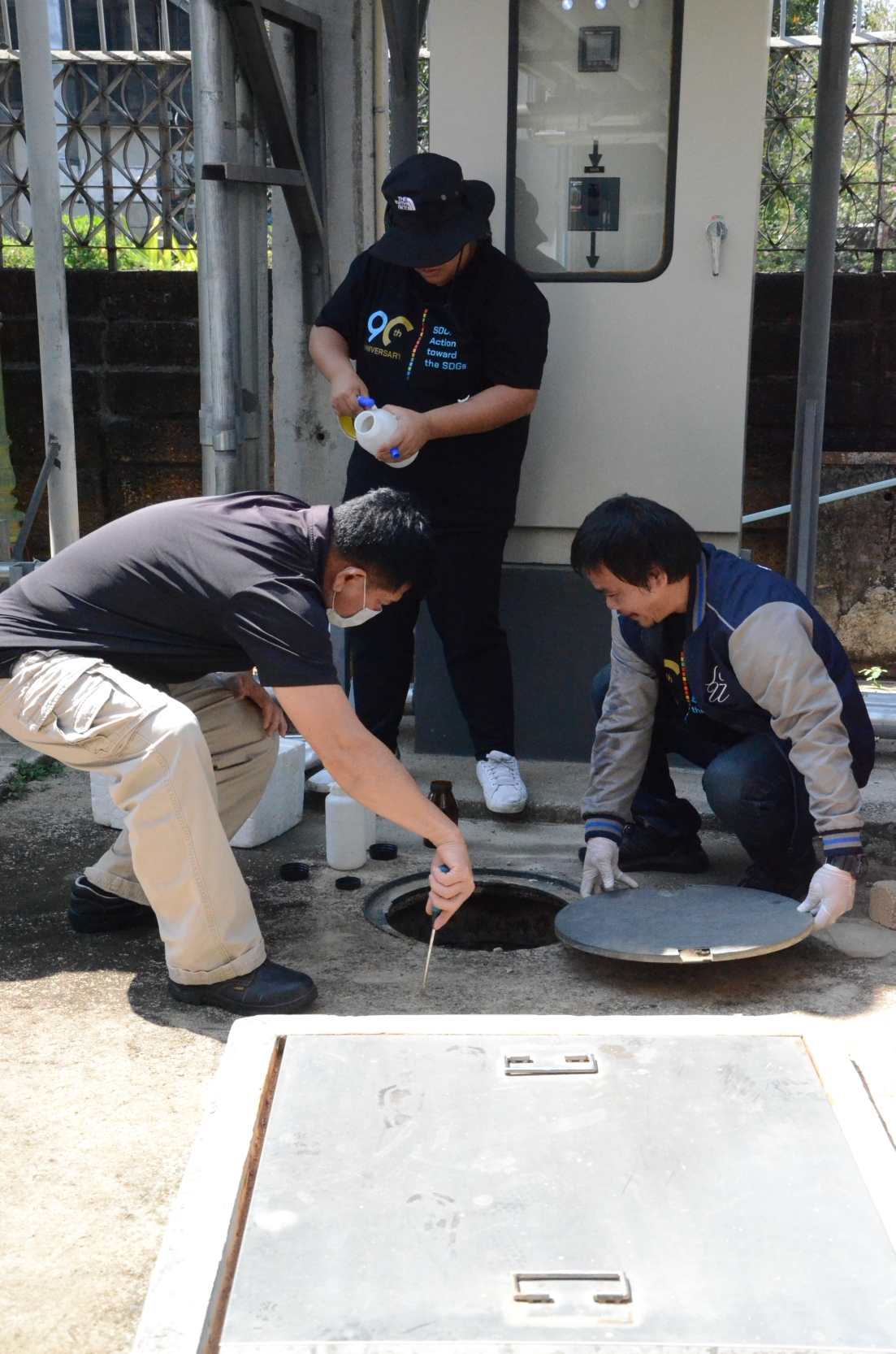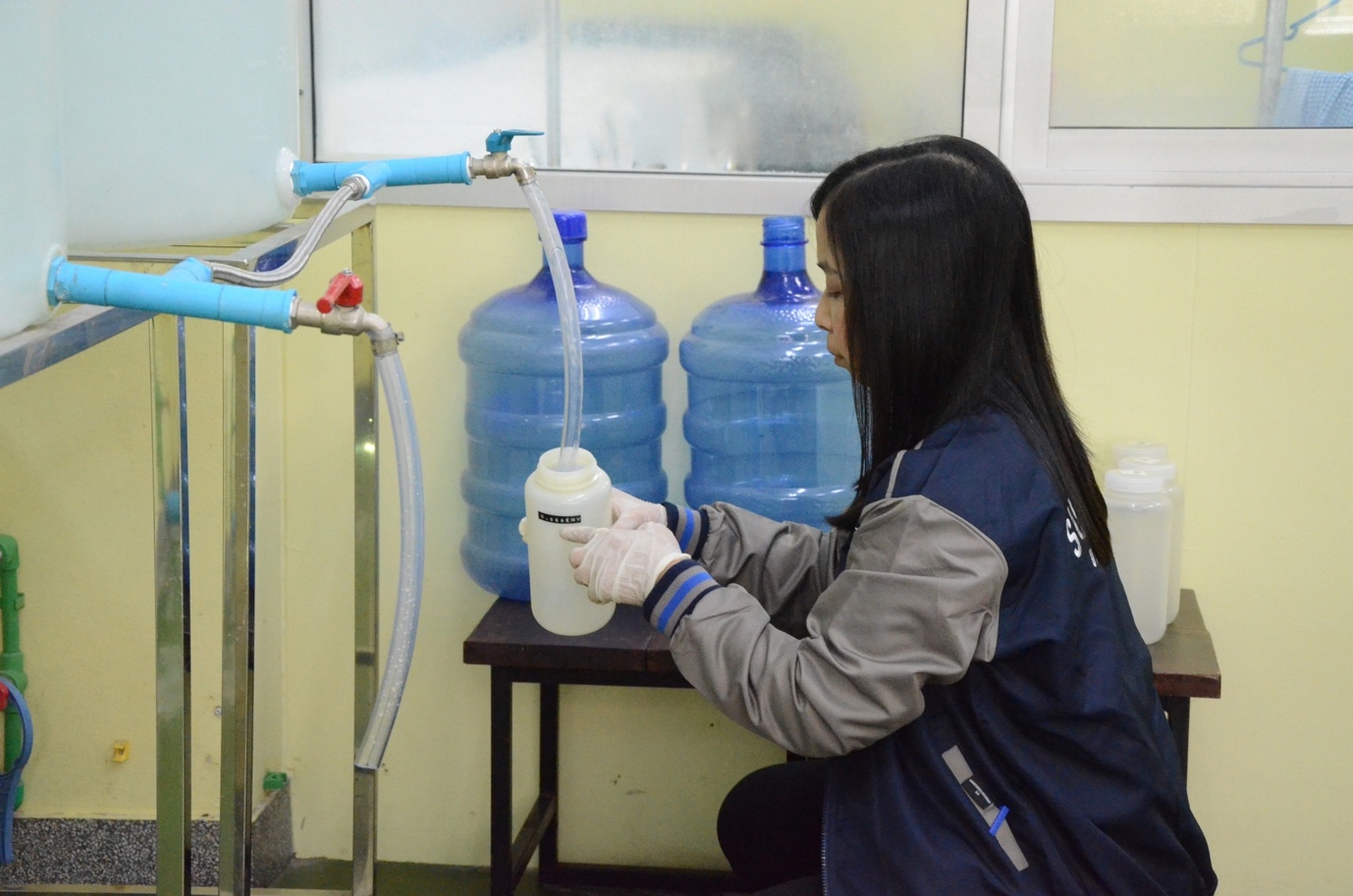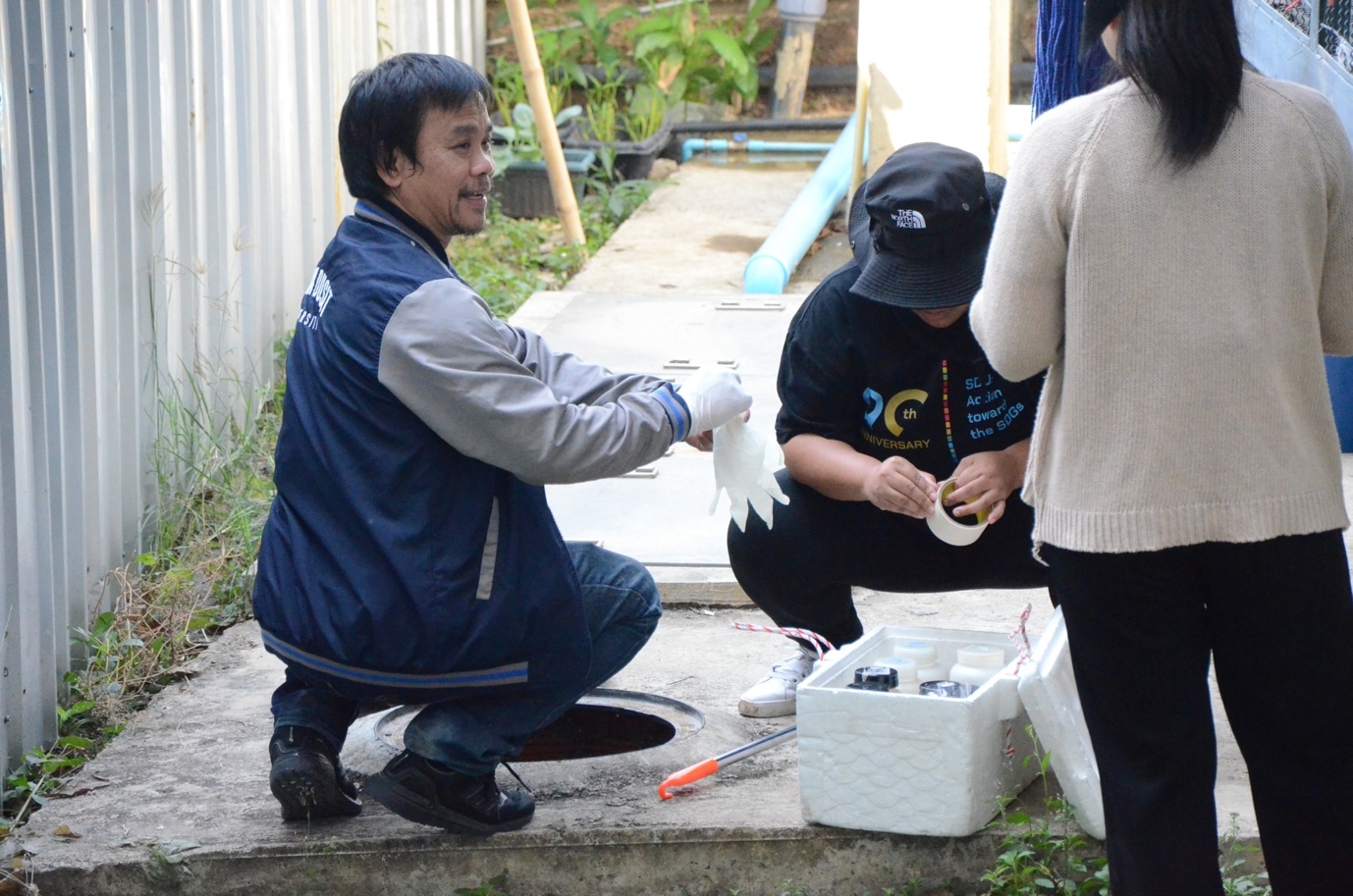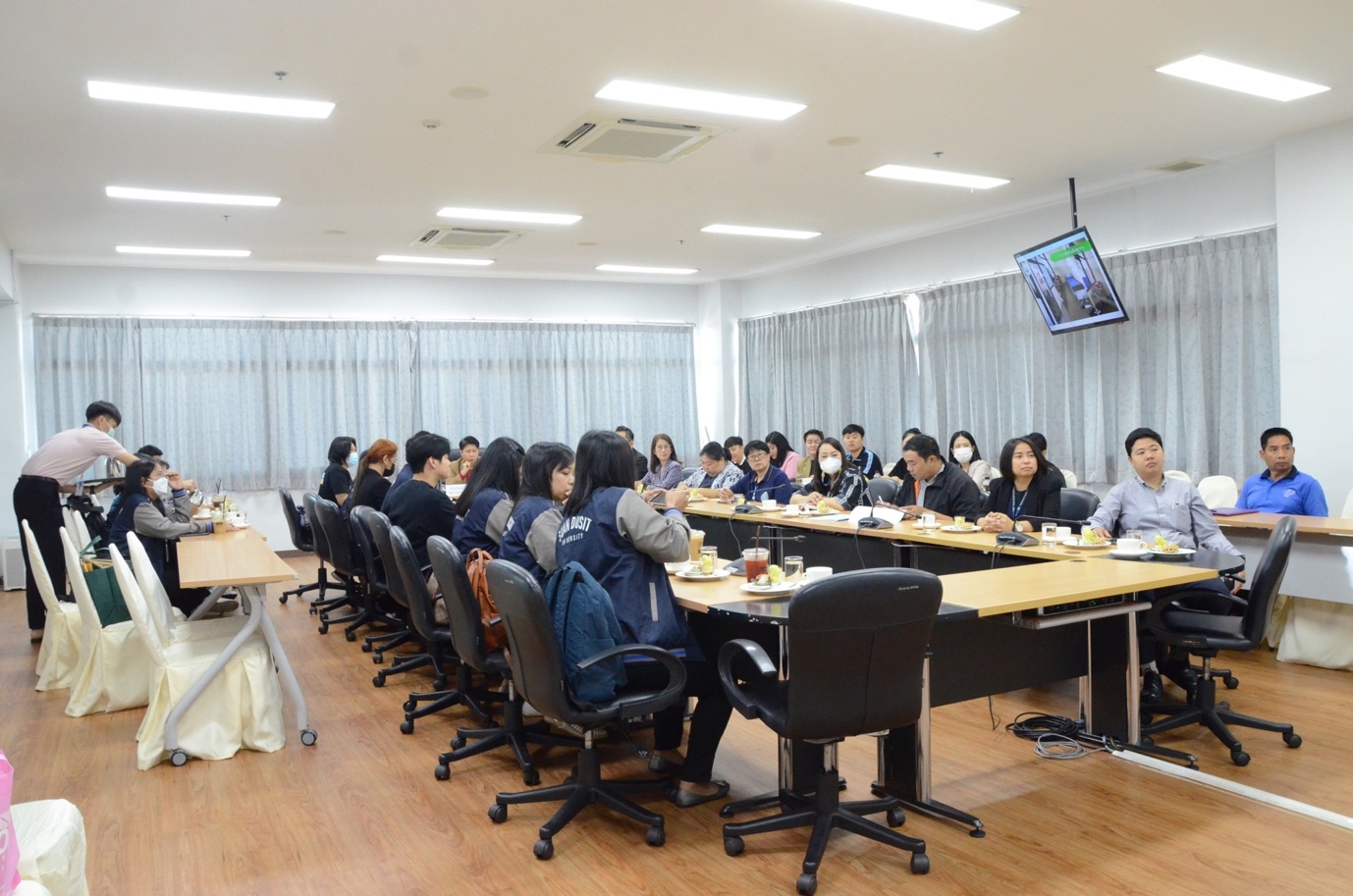Suan Dusit University (SDU) has committed to implementing systematic and sustainable environmental management practices, guided by its mission to become a Green & Clean University. Recognising the critical importance of aquatic ecosystems for both environmental balance and community well-being, the university—through its Environmental Center, Faculty of Science and Technology—has taken the lead in conducting monitoring and evaluation of water quality as part of the SHE Management Standards (Safety, Health, and Environment) Project. This initiative functions as a key mechanism for assessing and maintaining the ecological health of water systems within and around SDU campuses and learning centers nationwide.
Monitoring and Evaluation of Aquatic Ecosystem Health
In fiscal year 2024, SDU conducted extensive field monitoring and water quality assessments across all campuses and affiliated learning centers. The monitoring focused on three key areas: wastewater, domestic water, and surface waterfrom natural sources.


The evaluation covered multiple physical, chemical, and biological parameters, including:
- pH (acidity and alkalinity)
- Biochemical Oxygen Demand (BOD)
- Dissolved Oxygen (DO)
- Total Suspended Solids (TSS)
- Concentrations of nitrate, phosphate, and heavy metals
All procedures were performed in compliance with the standards of the Department of Pollution Control, under the supervision of SDU’s environmental scientists. Their responsibilities included sampling, laboratory analysis, and reporting of water quality data to evaluate the overall health of aquatic ecosystems associated with the university.

On-site Environmental Monitoring and Continuous Assessment

Suan Dusit University regularly conducts environmental assessments to ensure that its environmental management aligns with the SHE Management Standards and the Green & Clean University Policy.
The monitoring activities include evaluating water quality in treatment systems and surrounding areas of the campuses, followed by discussions between university executives and environmental specialists to establish strategies that minimise physical and chemical alterations to nearby water sources.
The university also evaluates other dimensions of environmental performance, such as waste management, wastewater treatment, and domestic water quality control, to prevent water pollution that could affect adjacent ecosystems. Regular monitoring of water in laboratories, canteens, and teaching facilities is also carried out to assess potential impacts from academic and administrative activities.
These efforts form part of a long-term commitment to maintaining sustainable water resource management and promoting a pollution-free aquatic environment within university operations.
Reporting and Dissemination of Findings
According to the Annual Environmental Report 2024, the Environmental Center analysed and assessed more than 1,840 water samples from within and outside the university premises. These samples included wastewater, potable water, and water from natural or wetland areas.
The results were recorded in SDU’s central environmental database, serving as empirical evidence for improving water management and developing sustainable mitigation measures.
Furthermore, the findings were disseminated to relevant administrative units—such as the Building and Facilities Division, Office of Special Affairs, and various campus departments—to inform decision-making and long-term planning for green infrastructure development and environmental policy improvement.
Outcomes and Positive Impacts
The monitoring of aquatic ecosystem health carried out by SDU in 2024 has produced significant environmental, institutional, and educational outcomes:
- Environmental Impact:
SDU successfully identified and controlled potential sources of water pollution within its facilities, reducing chemical and biological alterations to aquatic ecosystems and conserving biodiversity in nearby environments. - Institutional Impact:
The water quality data has been integrated into SDU’s Integrated Environmental Management System, supporting policy formulation, wastewater system improvement, and sustainable water governance across all campuses. - Educational and Social Impact:
The Environmental Center has become a Living Laboratory for students and staff, offering real-world learning experiences in environmental monitoring, water quality management, and sustainability science. This engagement enhances understanding of ecosystem protection and promotes a university-wide culture of sustainability.
The systematic monitoring of aquatic ecosystem health undertaken by Suan Dusit University serves as direct evidence of the institution’s proactive commitment to environmental stewardship and sustainable resource management.
Through continuous data collection, analysis, and transparent reporting, SDU not only ensures the ecological integrity of its internal water systems but also contributes to the preservation of surrounding natural environments and communities.
This initiative exemplifies SDU’s leadership in sustainable environmental governance, aligning strongly with SDG 14: Life Below Water and the Times Higher Education Sustainability Impact Ratings 2026, which emphasise the crucial role of higher education institutions in protecting and restoring aquatic ecosystems for future generations.
